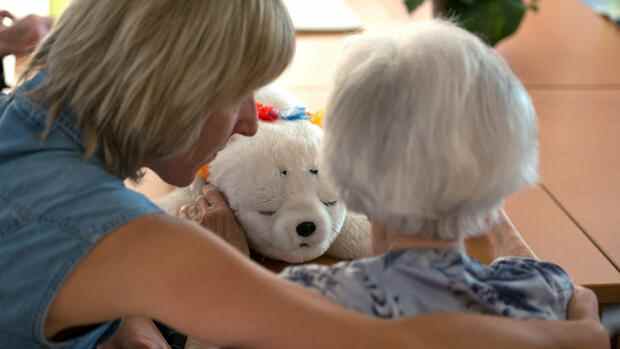If people in need of care want to live in their own household, the relatives often take on the care – and costs.
(Photo: dpa)
Berlin Who would not wish to continue to live in their familiar home even in old age? In many families, relatives make this possible for their parents, sometimes with the support of nursing services.
Nevertheless, high costs are sometimes incurred for the care provided by nursing professionals and the involvement of domestic help. Claiming this for tax purposes is not easy. A family whose case was last before the Federal Fiscal Court for a decision had to find out (Az. VI R 2/20).
In a contract with the welfare office, the daughter had agreed on care services for her mother, who lived in her own household. In this agreement signed by the daughter, the mother was designated as the recipient of the service.
In addition, she was named as the recipient by the welfare office in their invoices. The bills, which totaled around 1000 euros, were sent to the daughter, who also paid them and finally included them in her income tax return.
Top jobs of the day
Find the best jobs now and
be notified by email.
However, the responsible tax office did not recognize the daughter’s expenses as outpatient care and support costs. In the justification it pointed out that the invoices were made out to the mother of the taxpayer. The prerequisite for tax recognition would have been that she received the receipt herself.
The Berlin-Brandenburg Finance Court also did not recognize the deduction of the expenses in the subsequent proceedings. According to the judges, expenses for outpatient care and support for family members in their own households are not to be taken into account.
Own effort decisive, proof not
In the revision, however, the Federal Fiscal Court pointed out that a tax reduction for outpatient care and support expenses should also be granted if the services are provided in the household of the person requiring care. The costs for this can be claimed for tax purposes by the person who bore them. In contrast to what is otherwise customary in tax law, the prerequisite for this is neither an invoice nor payment by bank transfer.
Both personal and household-related services are recognized for income tax purposes. These include basic care measures as well as housekeeping activities. These include, for example, shopping, cooking or cleaning the house. The tasks are listed in the long-term care insurance benefits catalogue.
In order to be able to claim costs against income tax, they must reduce the ability of the taxpayer to pay. It is therefore crucial that relatives have actually paid for care and support services out of their own pockets. If, on the other hand, they only make the payment on behalf of the person concerned, they will not be able to reduce their taxes accordingly.
>> Read here: What can I deduct from tax as a pensioner?
In the present case, it therefore remains to be clarified whether the daughter bore the expense herself or merely made the transfer for her mother from her account. The Federal Fiscal Court therefore referred the matter back to the Berlin-Brandenburg Finance Court for further review.
Special case of home accommodation
In contrast to outpatient care and support, costs for inpatient accommodation in a nursing home can only be claimed for tax purposes by the residents themselves. This results from the fact that the person concerned is the recipient of the service in this case.
In the case of outpatient care, on the other hand, the relatives are also more involved. In return, they benefit from the tax reduction if they bear the expenses.
Care costs can be claimed against income tax if the person to be cared for has a recognized need for care. This is the case if she has been grouped into one of the five care levels. Those who have a severely disabled person’s pass with the characteristics “H” or “Bl” are also part of the beneficiary group. The same applies to people with a recognized illness who incur corresponding costs as a result.
Finally, the expenses for a recognized care service can be recognized as extraordinary expenses in the income tax return. A personal contribution in the amount of the reasonable burden is excluded. The reasonable burden depends on income and marital status.
Are you interested in this tax tip? You can find more articles at our cooperation partner Haufe.de.
More: Books, travel expenses, maintenance – with these expenses you reduce your tax burden

